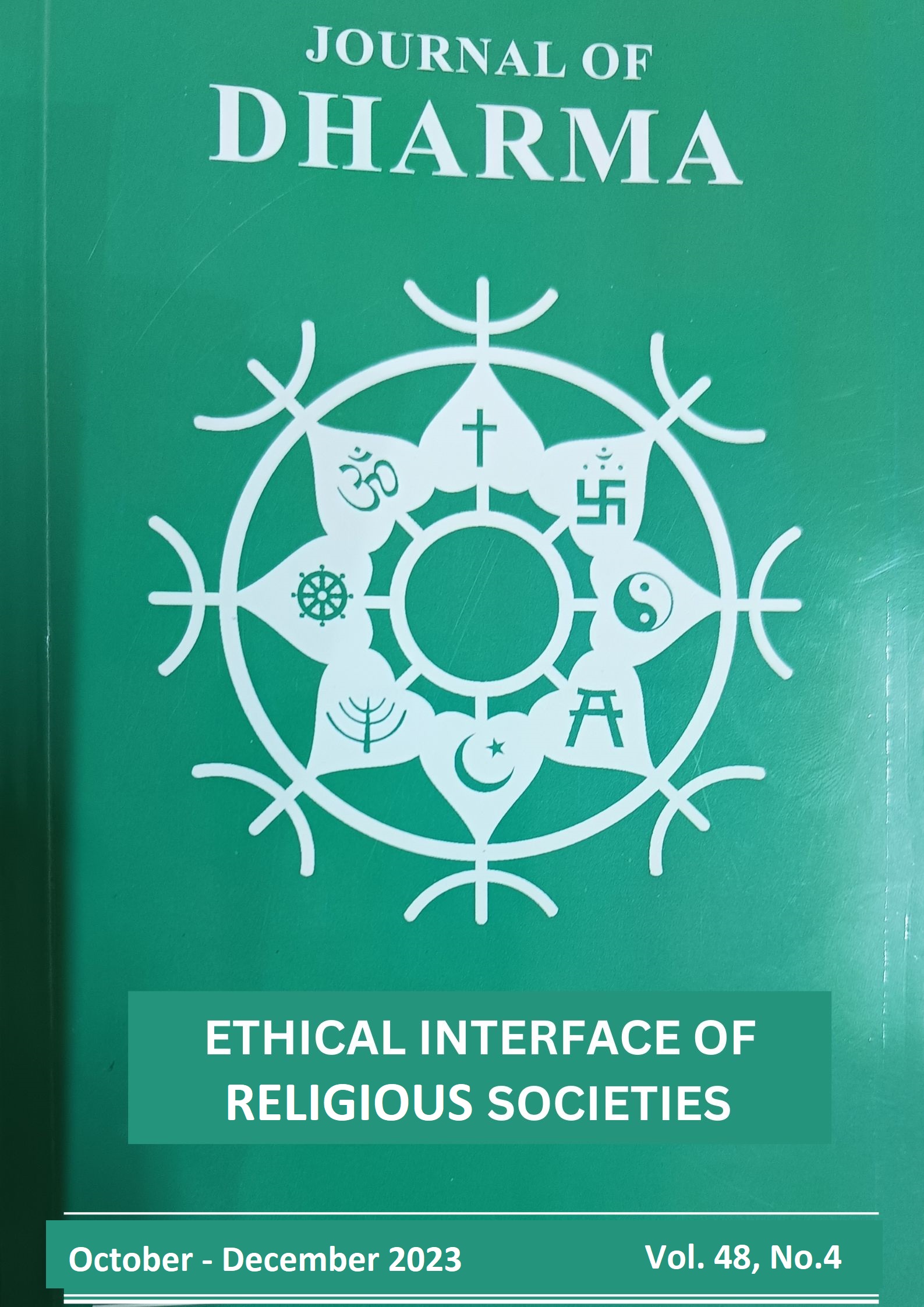ETHICAL FOUNDATIONS OF SRIMANTA SANKARDEV’S EKAŚARAṆA DHARMA AND ITS CONTEMPORARY RELEVANCE
Keywords:
Koch Dynasty, sattra, namghar, Mahāpūruṣia, Bhāgavatam, Borgeet, Ankiyâ Naat, Bhāonā, Ekaśaraṇa Dharma.Abstract
Ethics and religion share a symbiotic relationship, although both can exist independently of each other. The ethical dimensions intertwined with religious discourse are dynamic, prompting an exploration of their current associations and contemporary relevance. This paper examines the ethical foundations of the Ekaśaraṇa Dharma, propagated by Srimanta Sankardev, a well-known revered saint-scholar from 15th-16th century Assam. The argument posits that an ethical interface between individuals and an inclusive religion serves as a potent tool for contemporary sustenance. The paper also examines the functioning of the sattras (monasteries) and the namghars (prayer houses) which propagated the Ekaśaraṇa Dharma, alongside an analysis of Sankardev’s artistic contributions stemming from the movement. This work further scrutinizes Sankardev’s religious philosophy, centered on fostering an all-inclusive society, to ascertain if the foundational principles of Ekaśaraṇa Dharma can effectively address the conflicts prevalent in today's digital world.
Downloads
Published
How to Cite
Issue
Section
License
Copyright (c) 2024 Journal of Dharma

This work is licensed under a Creative Commons Attribution-ShareAlike 4.0 International License.

